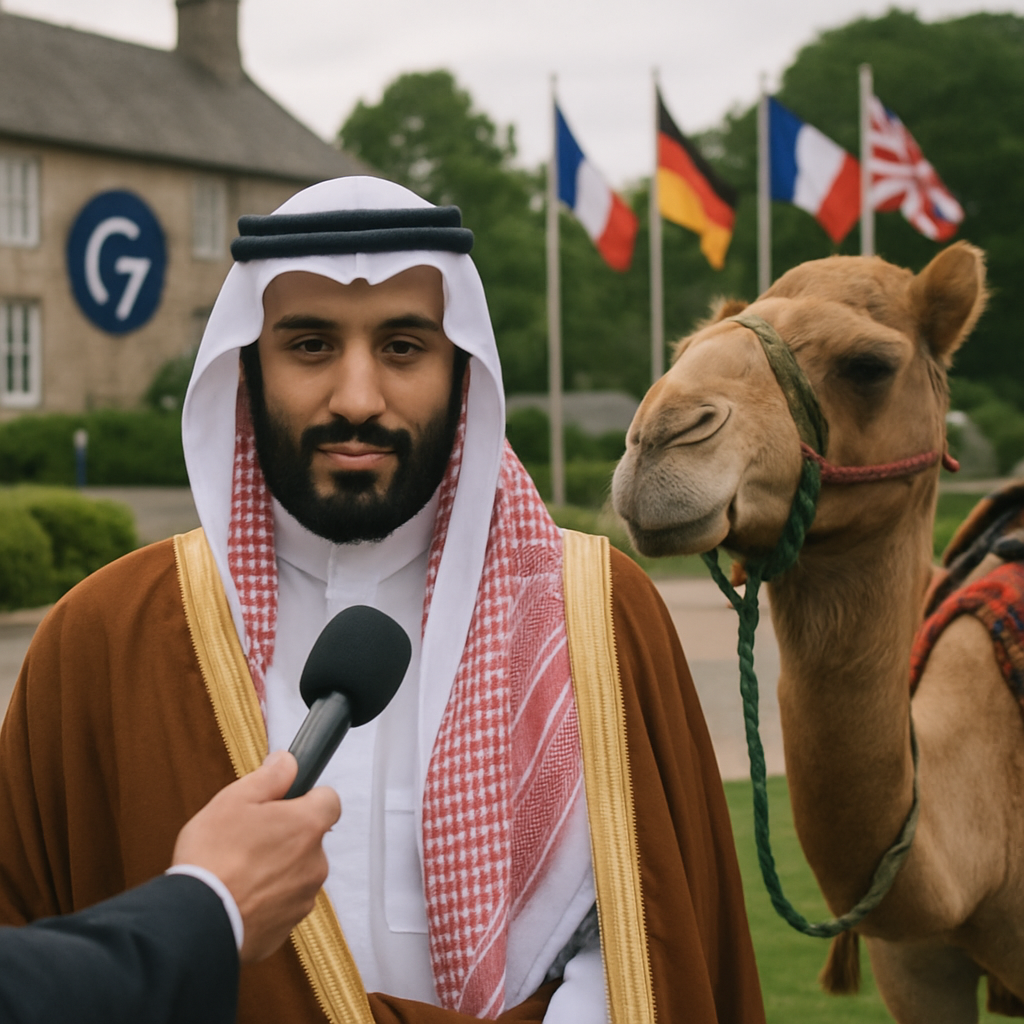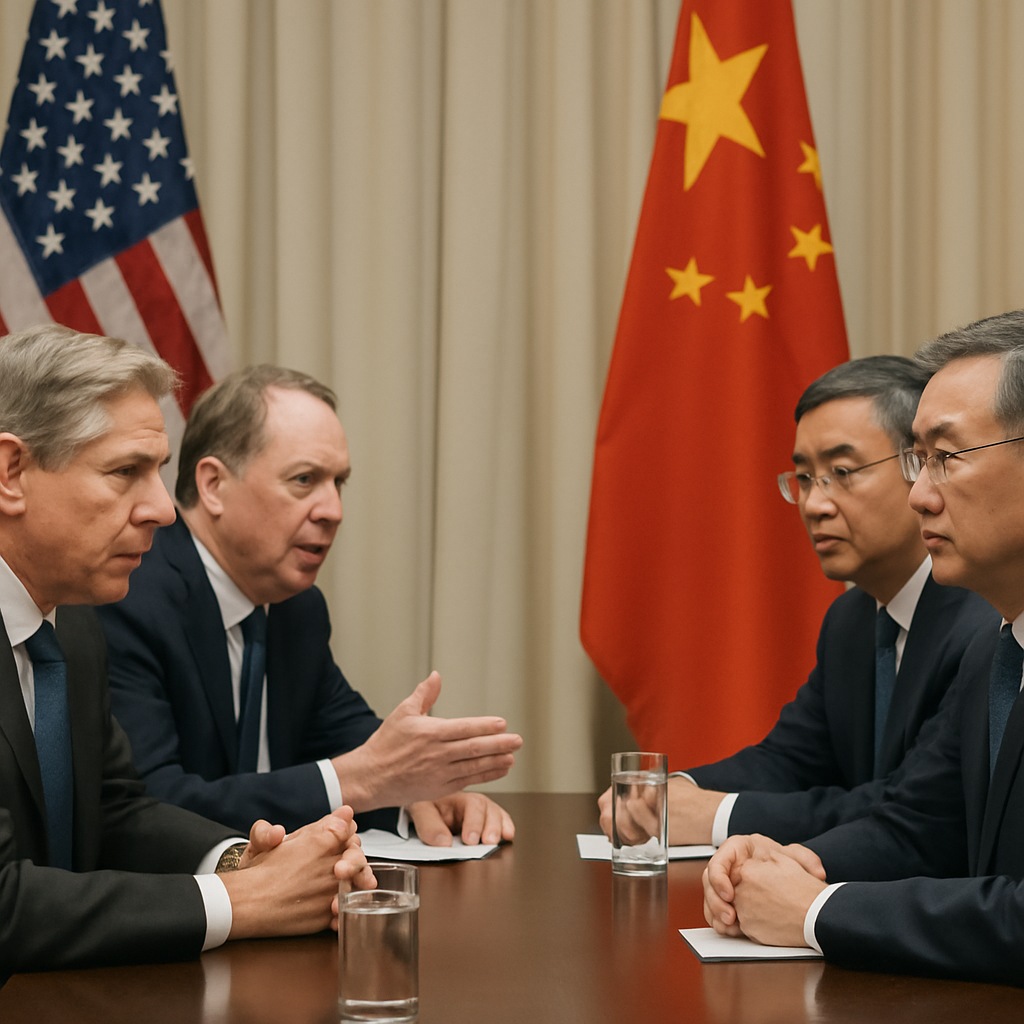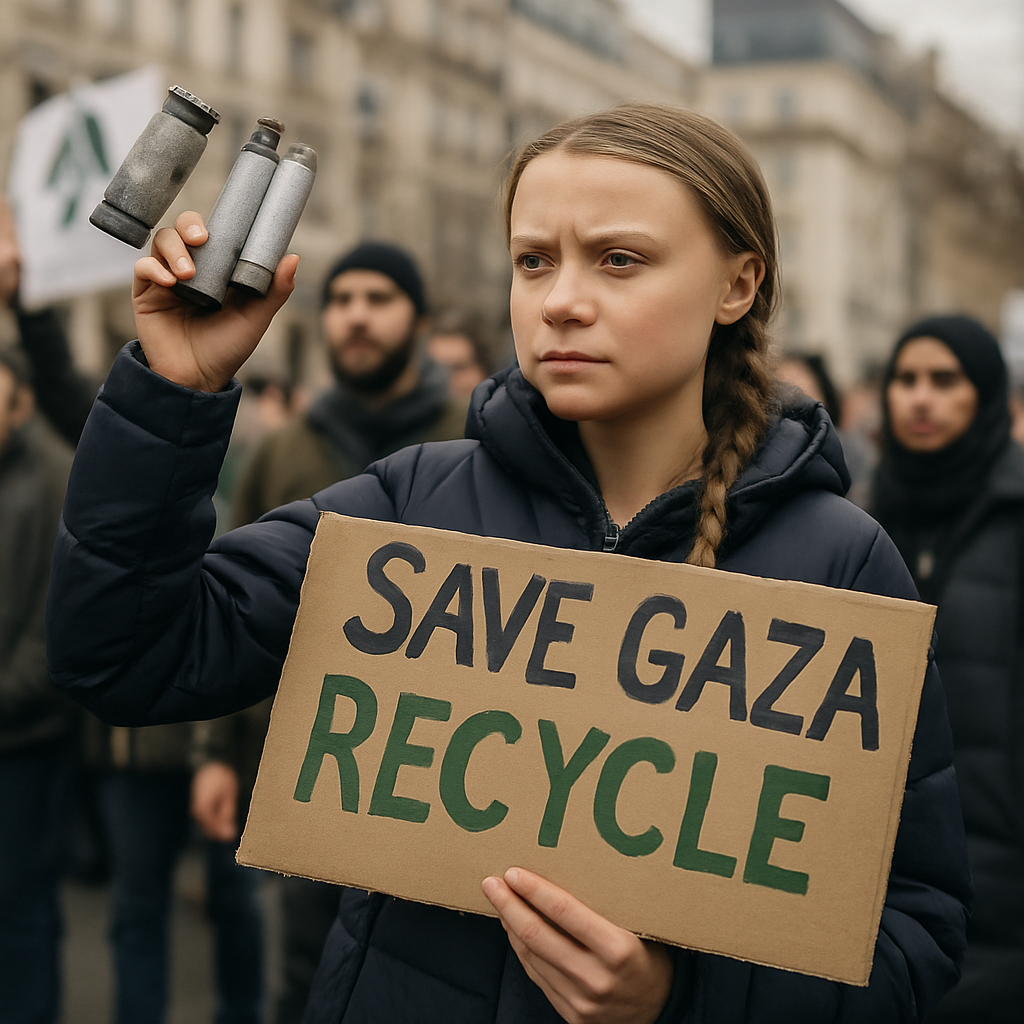*ALBERTA, CANADA—* In a surprising twist to the already newsworthy guest list of the upcoming G7 summit, Saudi Crown Prince Mohammed bin Salman, commonly known as MBS, has reportedly sent an RSVP posing a unique logistical question: “Is camel parking included?”
The invitation of the Saudi royal to the prestigious summit in the Canadian Rockies has already stirred global interest, but this latest inquiry has left organizers scrambling to address what they now term “a notable interspecies transportation accommodation.” Multiple officials involved in the planning, preferring to remain anonymous, confirmed the story to not violate the sanctity of diplomatic relations or the newly enacted Official G7 Summit Nondisclosure Agreement.
“While we had prepared for an entourage and fast-moving cavalcade, we hadn’t considered traditional Saudi transport methods,” stated Alberta’s Chief Diplomatic Envoy for International Events, Charles P. Grandel. “But as hosts, it’s our prerogative—nay, our duty—to accommodate each guest’s particular needs, however hoofed they may be. I’ve already asked my team to scout for suitable pasture land.”
Diplomatic protocol experts are reportedly at odds over the unexpected request. “To my knowledge, camels haven’t been required at any recent G7 summits, but given the symbolic importance of MBS’s presence for Middle Eastern geopolitics, this is more than a mere parking dilemma,” observed Dr. Hermione Tradewell, international etiquette strategist and author of *Dromedary Diplomacy: Navigating Cross-Cultural Exchanges*. “Traditionally, camels symbolize prestige and wealth in the region. To not accommodate such a request could be seen as a diplomatic snub.”
The eccentric turn of events took an even more whimsical direction when anonymous geospatial experts suggested the possibility of setting up temporary sand dunes near the summit venue to ensure the comfort of the royal conveyances. Additionally, rumors abound that summit planners have discreetly contacted several Calgary-area zoos, presumably to secure additional camels, possibly in an effort to demonstrate Alberta’s eagerness to embrace cultural unity, or perhaps an opulent, if not slightly excessive, gesture of hospitality.
Local transportation agencies are reportedly engaged in quiet but urgent discussions over reallocating snowplows for the task of “dune maintenance” should camels be integrated into the summit’s transportation ecosystem. Despite the minor hiccup, Provincial Minister for Transport and Urban Camel Affairs, Susannah J. Bridger, remained optimistic. “Alberta is known for its adaptability and pioneering spirit—whether it’s plowing snow or smoothing sands, we are ready.”
As questions of desert mammal logistics swirl, insiders remain tight-lipped about whether security details will permit the use of ornate camel saddles, and how such factors might affect international peace talks. Meanwhile, the official Saudi response on the camels’ itinerary remains as elusive as a mirage on the sprawling tundra of international relations.
The future of the G7 Summit remains to be seen, teetering on the edge of climate-conscious travel discussions and a gilded caravan echoing across the land. As summit organizers huddle, one anonymous official offered what may become the emblematic wisdom of our times: “Never underestimate the power of a camel to unsettle carefully laid plans.”



